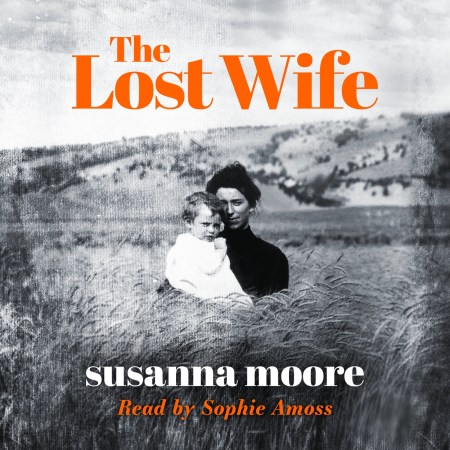Winner of the 2023 David J. Langum, Sr. Prize in American Historical Fiction
‘A breathtaking tale of love and war’
Telegraph
‘Moore’s voice is cool and sure, rich with detail’
Vogue
‘A riveting account of one woman’s journey’
Guardian
Summer, 1855. Sarah Brinton sets out from Rhode Island, leaving an abusive husband and child behind to head west across the country, until her journey ends in Minnesota Territory, on lands claimed both by white settlers and Native Americans. There she finds herself another husband, a Yale-educated doctor who works on the nearby Sioux reservation, and settles into a new life.
Sarah’s days on the edge of the prairie are idyllic if tough, as she befriends and works with the Sioux women. But trouble is brewing. The Sioux tribes are wary of the white settlers and resent the rampant theft of their land.
When the Sioux take their fate into their own hands, Sarah’s loyalties are split between the Sioux and her fellow white settlers. As the conflict rages, she finds herself lost to both worlds.
The first novel in ten years from the author of In the Cut and Miss Aluminium, this is a story about freedom and oppression, intimacy and violence, and a woman caught in the crossfire of one of the most seminal and shameful moments in American history.
‘A breathtaking tale of love and war’
Telegraph
‘Moore’s voice is cool and sure, rich with detail’
Vogue
‘A riveting account of one woman’s journey’
Guardian
Summer, 1855. Sarah Brinton sets out from Rhode Island, leaving an abusive husband and child behind to head west across the country, until her journey ends in Minnesota Territory, on lands claimed both by white settlers and Native Americans. There she finds herself another husband, a Yale-educated doctor who works on the nearby Sioux reservation, and settles into a new life.
Sarah’s days on the edge of the prairie are idyllic if tough, as she befriends and works with the Sioux women. But trouble is brewing. The Sioux tribes are wary of the white settlers and resent the rampant theft of their land.
When the Sioux take their fate into their own hands, Sarah’s loyalties are split between the Sioux and her fellow white settlers. As the conflict rages, she finds herself lost to both worlds.
The first novel in ten years from the author of In the Cut and Miss Aluminium, this is a story about freedom and oppression, intimacy and violence, and a woman caught in the crossfire of one of the most seminal and shameful moments in American history.
Newsletter Signup
By clicking ‘Sign Up,’ I acknowledge that I have read and agree to Hachette Book Group’s Privacy Policy and Terms of Use
Reviews
In replacing long-held legends with historic traumas, Moore's steely vision of the American west recognizes few, if any, heroes. The result is a repudiation - solemn yet stirring - of the idealized fable of the American West
Her writing is so precise and perceptive, so disturbing, frightening and erotic all at once . . . this profoundly clever woman with her life in her hands
Moore (In the Cut) returns with a bracing and daring account of a woman who tries to build a new life on the American frontier. . . . This is a masterwork
A breathtaking tale of love and war on the 19th-century American frontier . . . Impressively taut and evocative . . . A captivating period piece that brings life on the frontier into vivid, often brutal focus through the prism of female experience . . . Although at first glance, The Lost Wife appears to be very different to Moore's most famous work, her erotically-charged thriller In the Cut, both novels are intimately concerned with sex, violence and language
Based partly on a woman's account of her abduction along with her children during the Sioux Uprising in 1862, Moore's novel is a tense, absorbing tale of adversity and survival . . . Moore has imagined a brave, perceptive woman with no illusions about the hypocrisy of those who proclaim themselves civilized . . . A devastating tale rendered with restrained serenity
Moore is often called a "cult" writer. I find her to be one of the most compelling novelists alive. The Lost Wife is concise and brutally incisive . . . As ever, Susanna Moore is unflinching
Moore returns with a bracing and daring account of a woman who tries to build a new life on the American frontier . . . This is a masterwork
It's fitting that The Lost Wife . . . should directly follow Miss Aluminum, [Moore's] lustrous 2020 memoir; this book, like that one, tells the story of a woman continuously transformed by difficult relationships and sweeping changes of circumstance . . . Moore's voice is cool and sure, rich with detail
A compelling tale of survival, loyalty and exploitation
Susanna Moore belongs to a small class of writers whose work performs the paradoxical miracle of giving solace by offering none
A welcome new display of Susanna Moore's masterful approach to the undercurrent of violence that she believes runs beneath all human behaviour . . . Moore is a master of smallness. Her deceptively simple sentences are like geysers. The churning energy underneath is violent, animal and sexual. Her acrobatics in this novel reminded me of a scene from the 1992 film The Last of the Mohicans that takes place on the edge of a cliff, in which choices and motivations are conveyed only with looks and gestures - no dialogue. This is how we read the sexual energy in The Lost Wife





